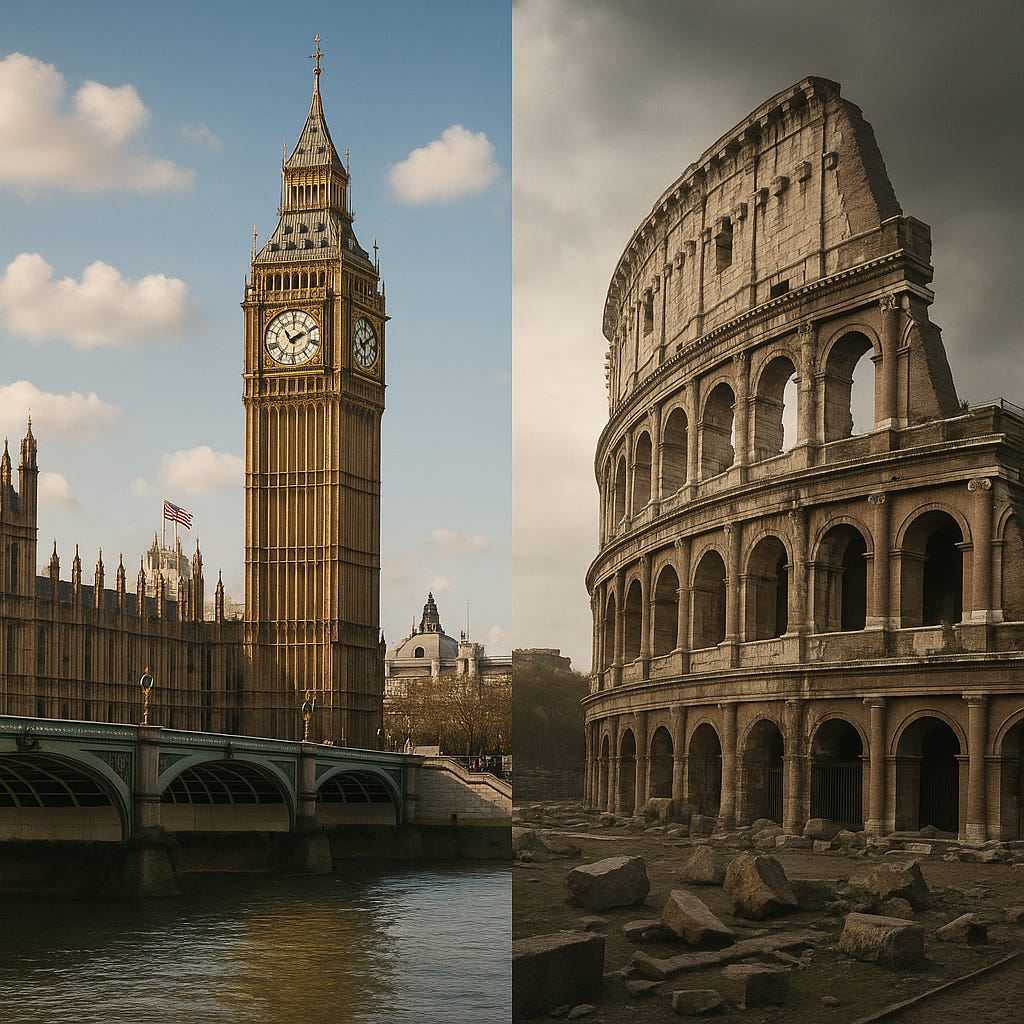Thursday's Edition: The Empire That Built the Modern World
What Makes Empires Fall?
The British Empire shaped the modern world. It built global trade routes, introduced industrial manufacturing, created modern banking, and spread railways, telegraphs, and steamships to every region it controlled. These systems gave Britain a large advantage for more than a century. But the same global systems that Britain created eventually weakened Br…



